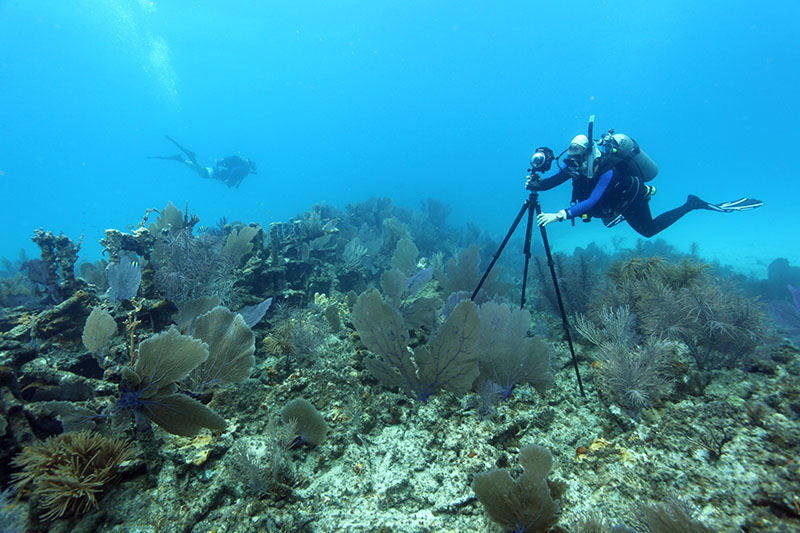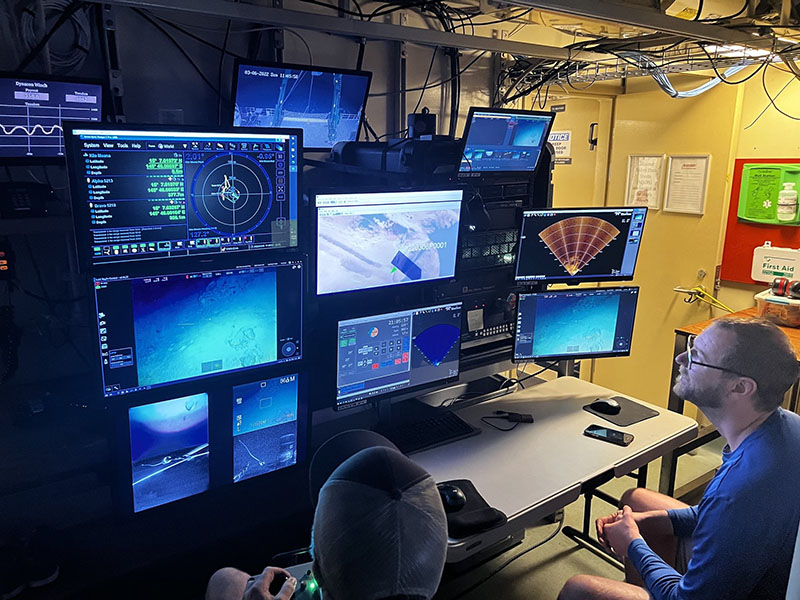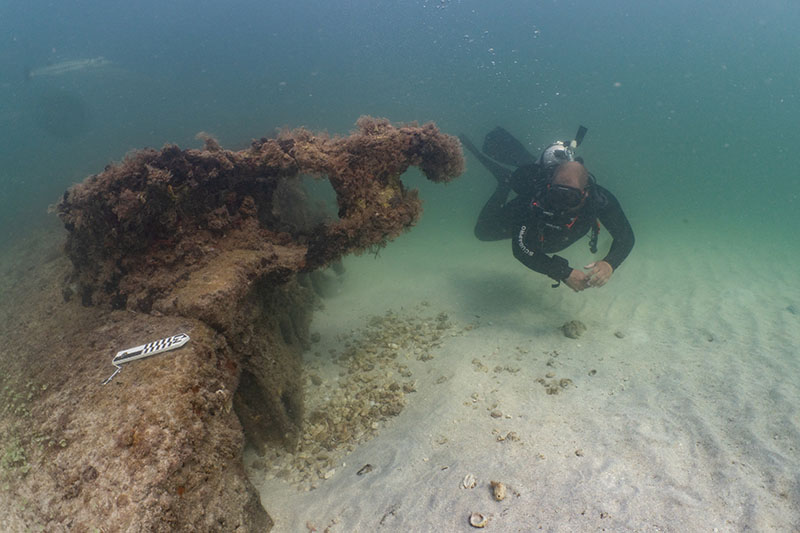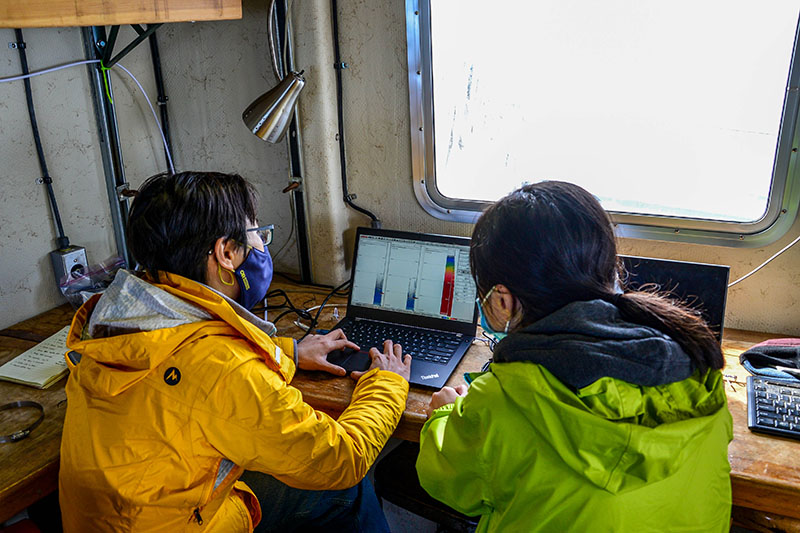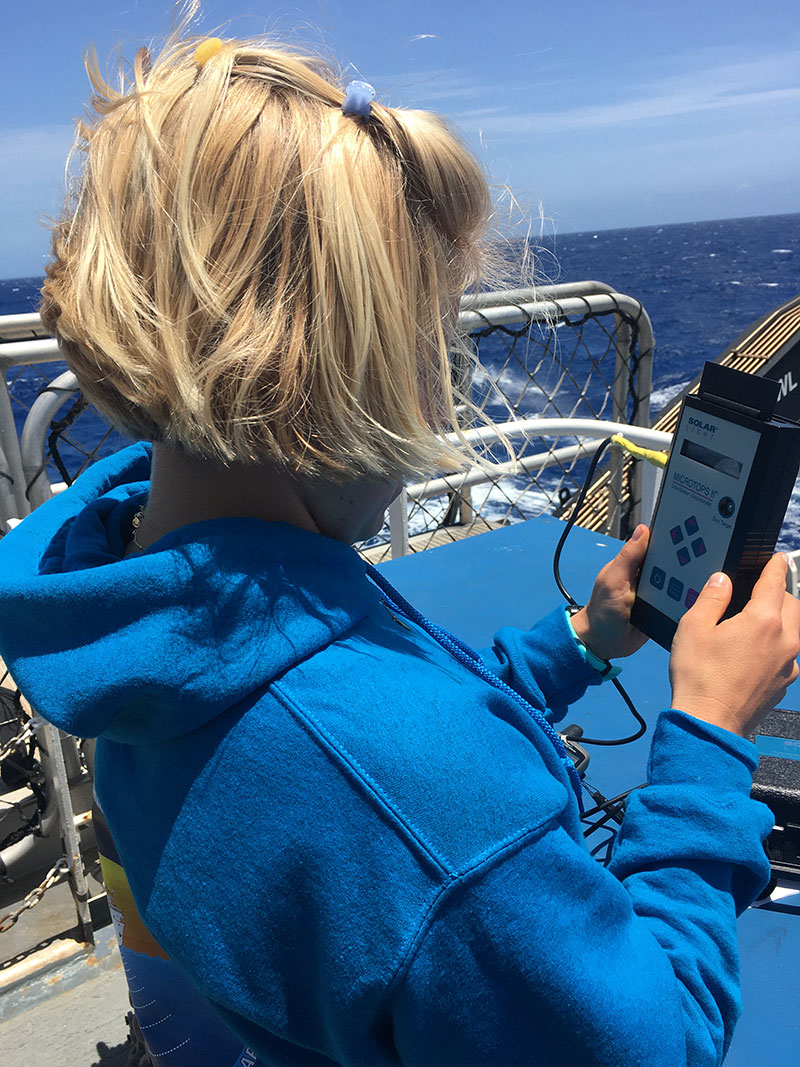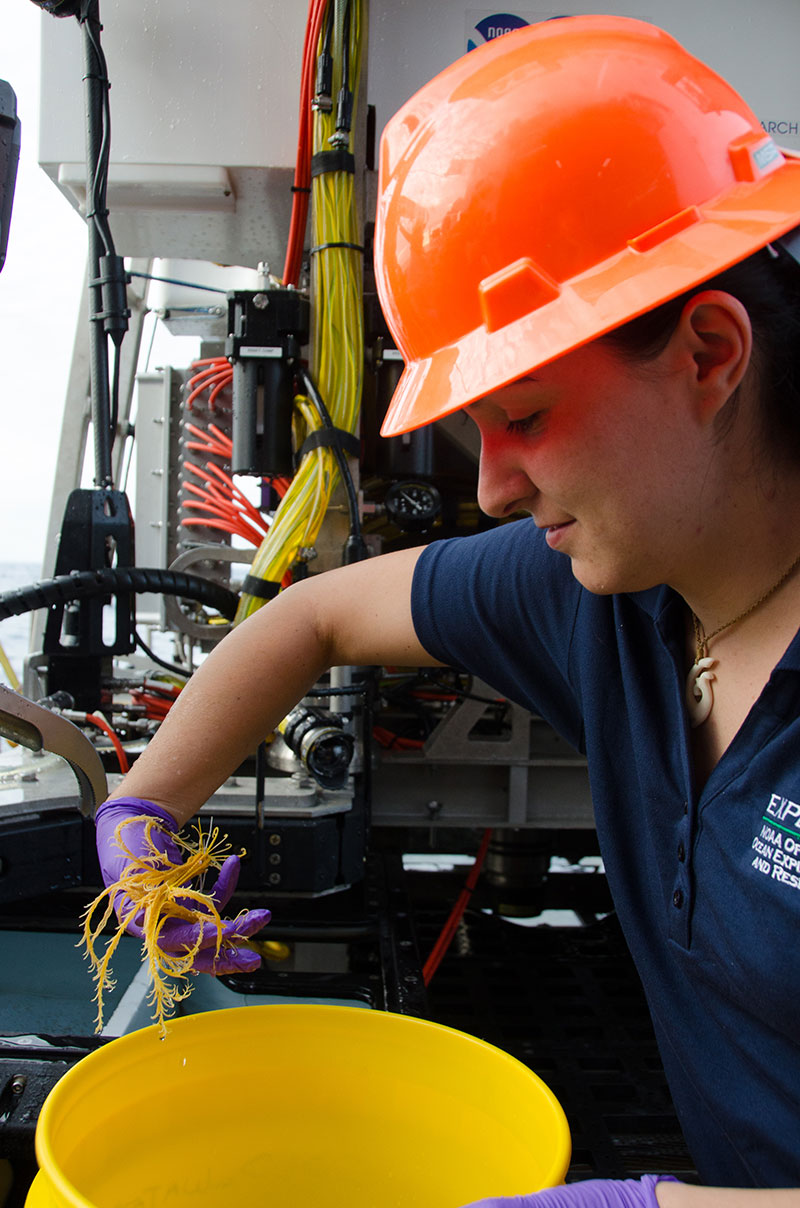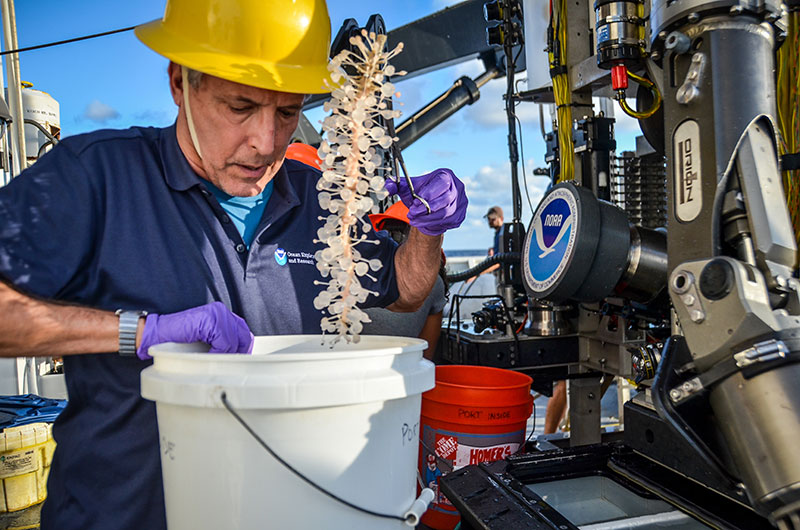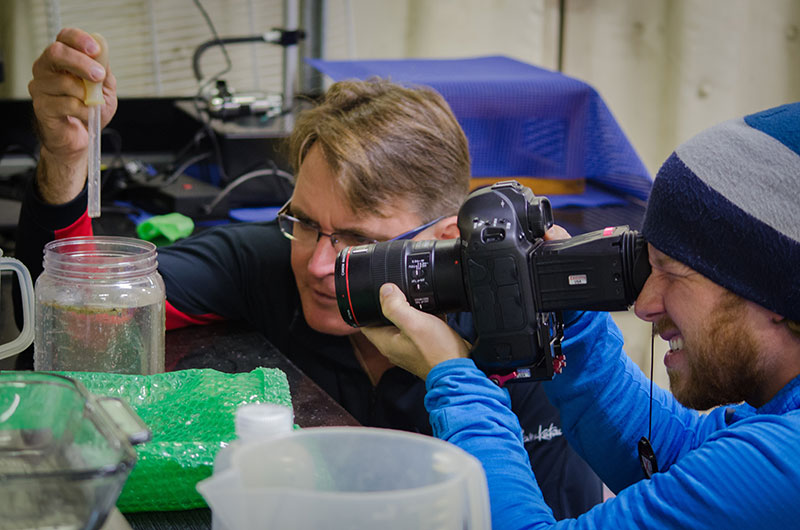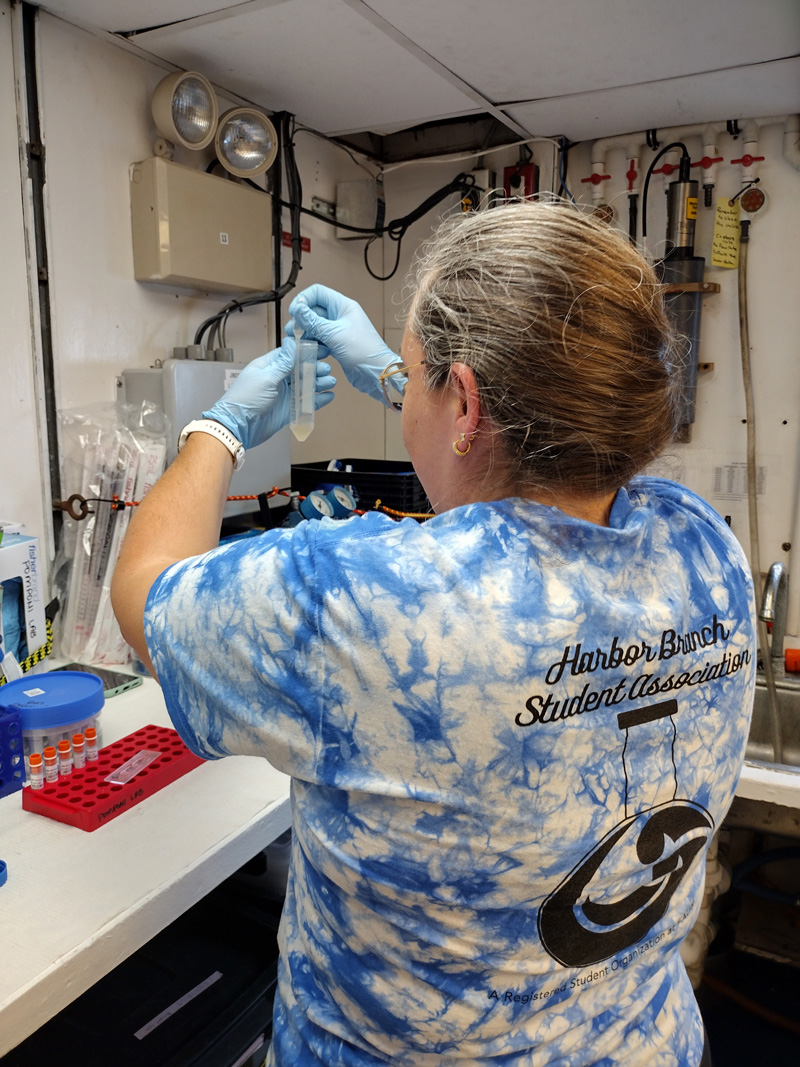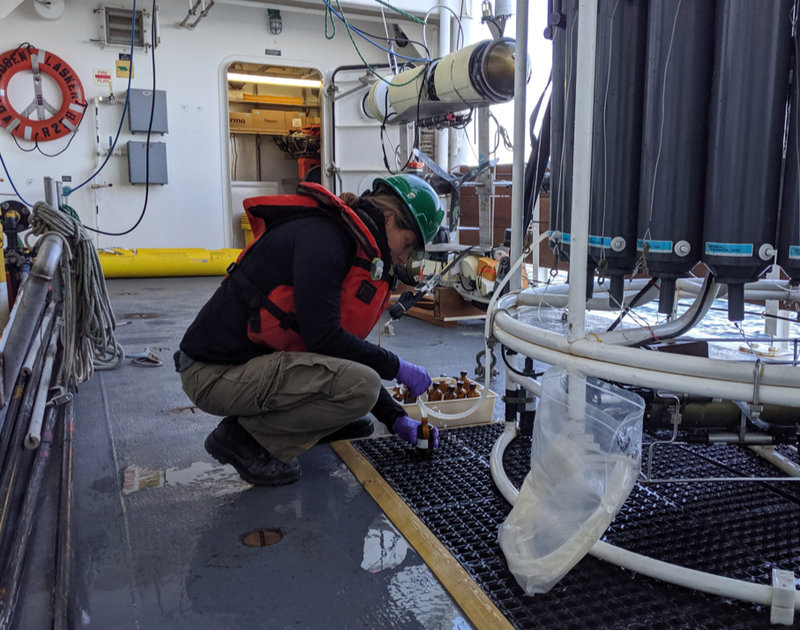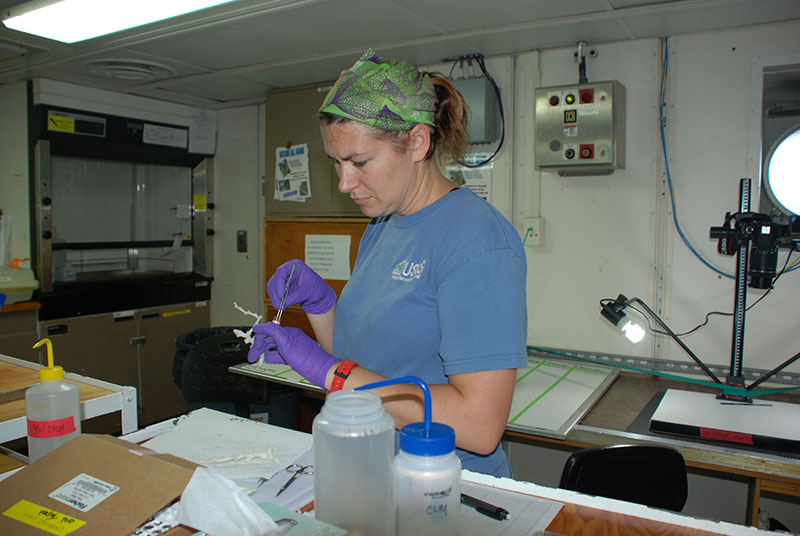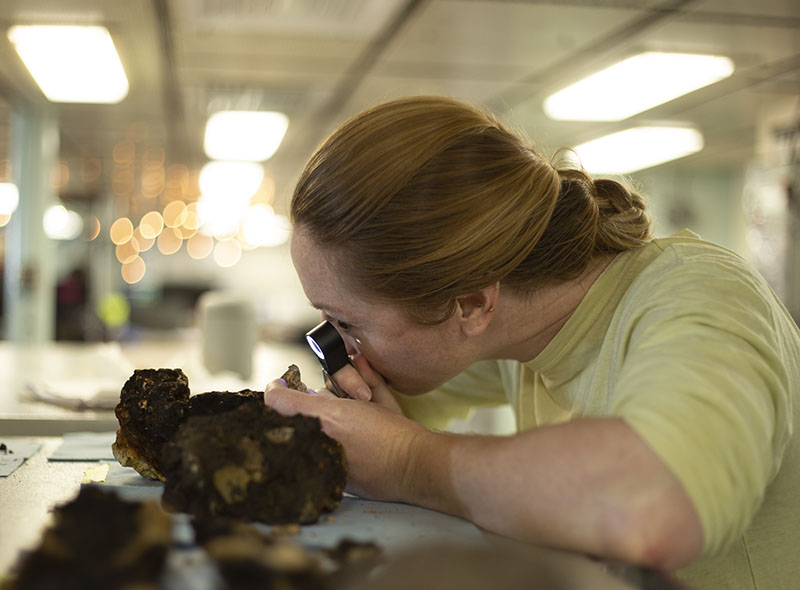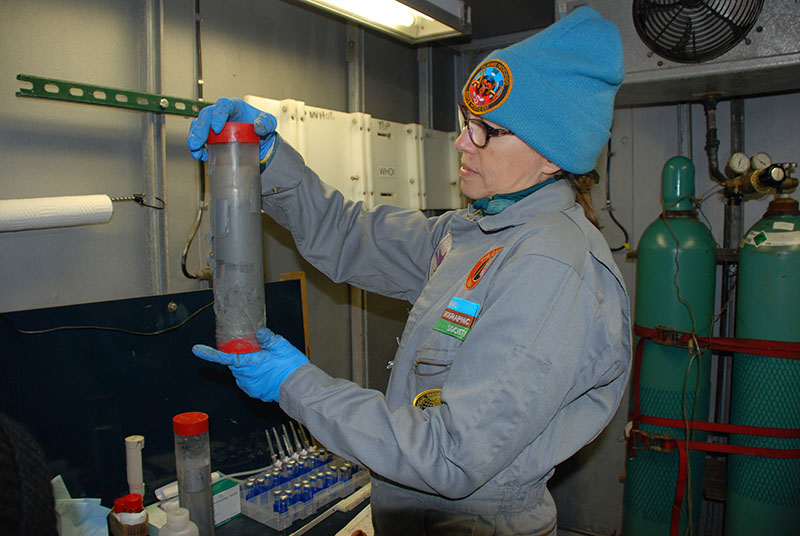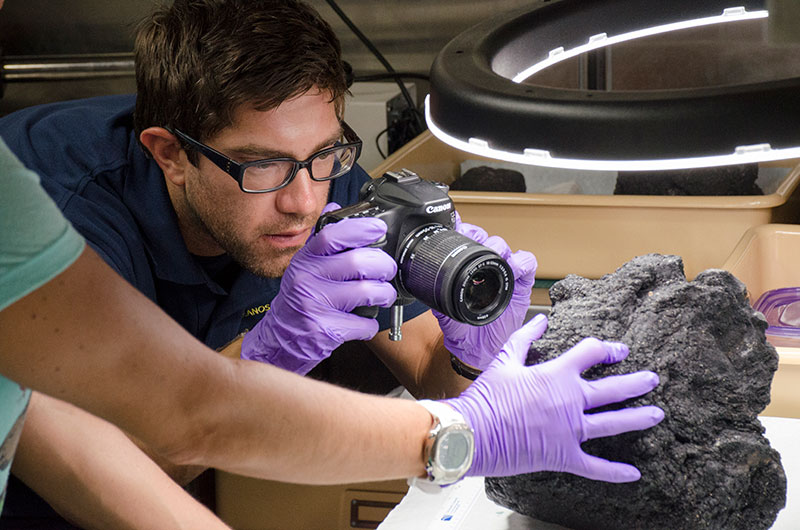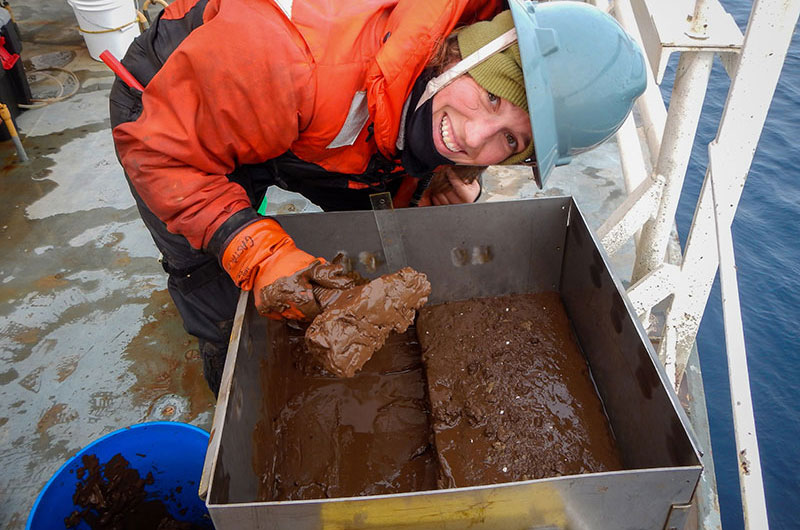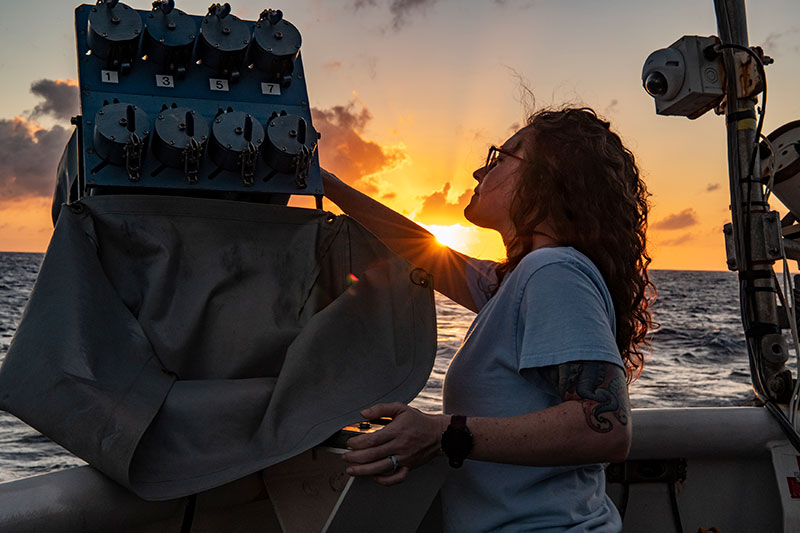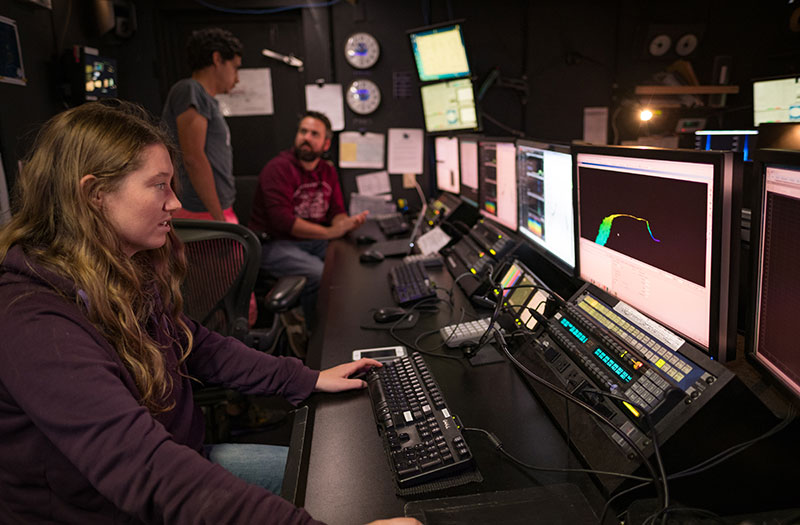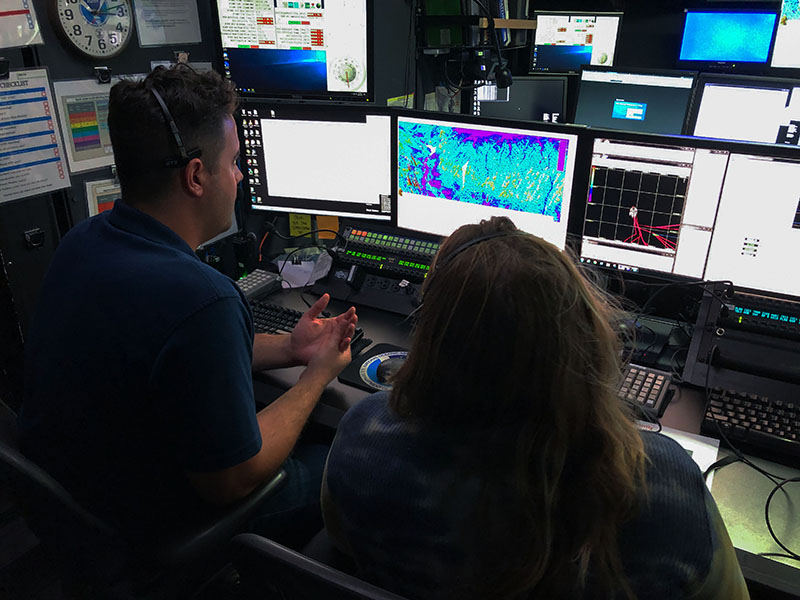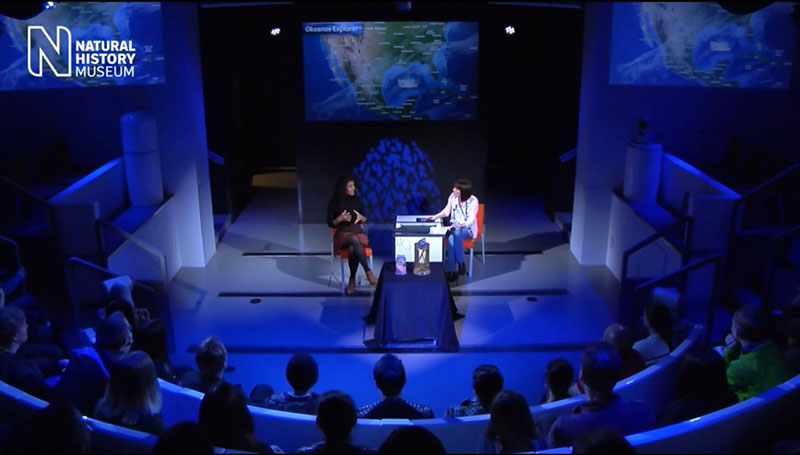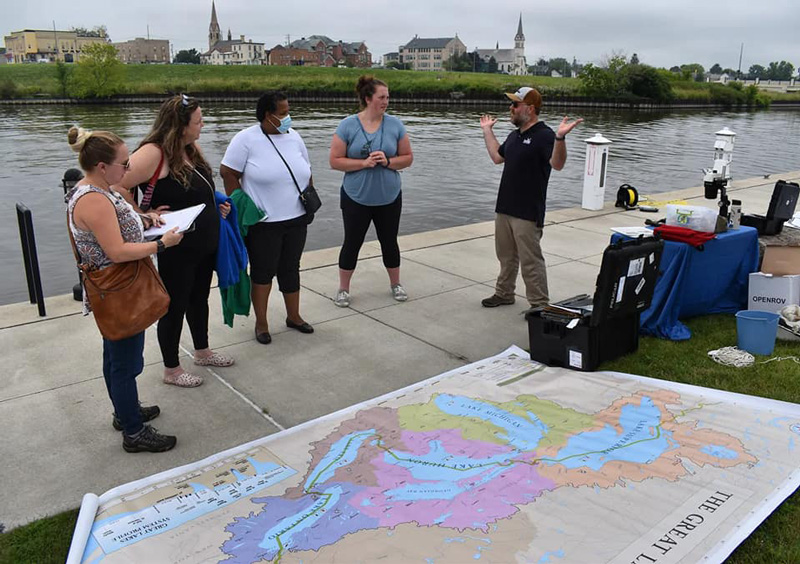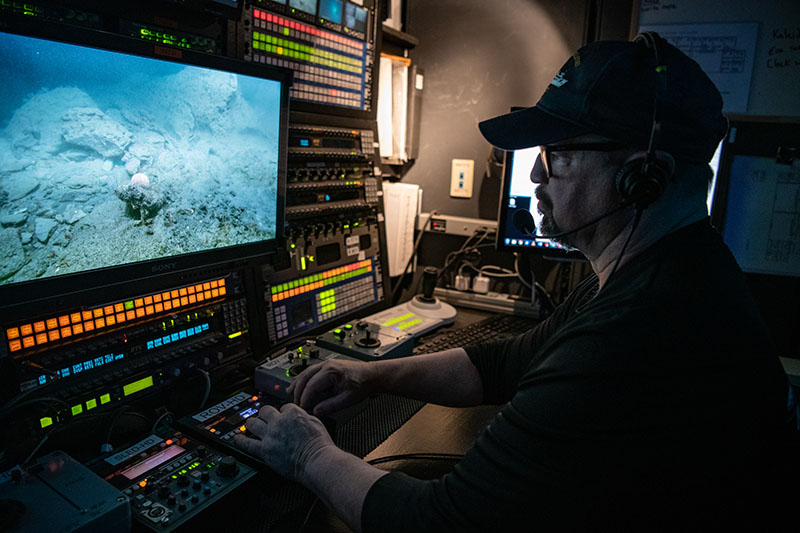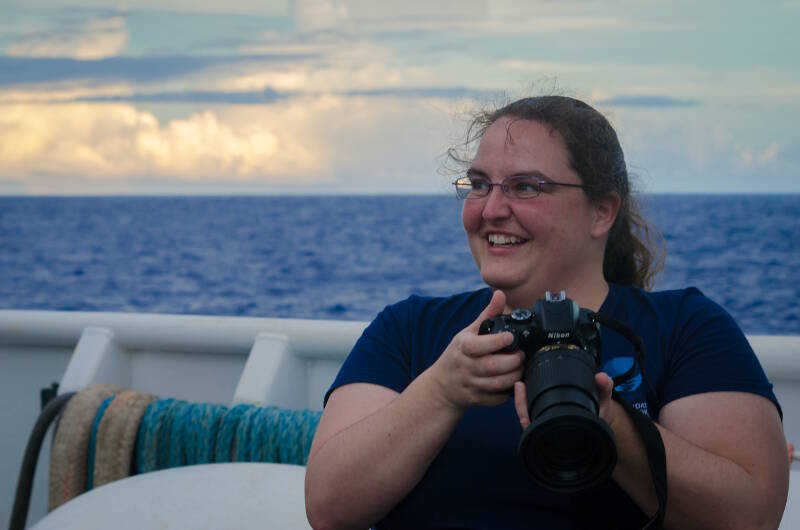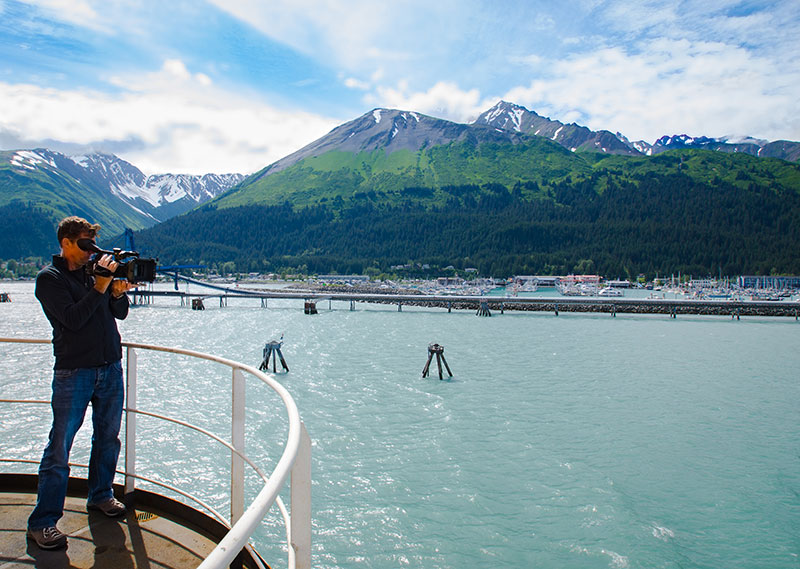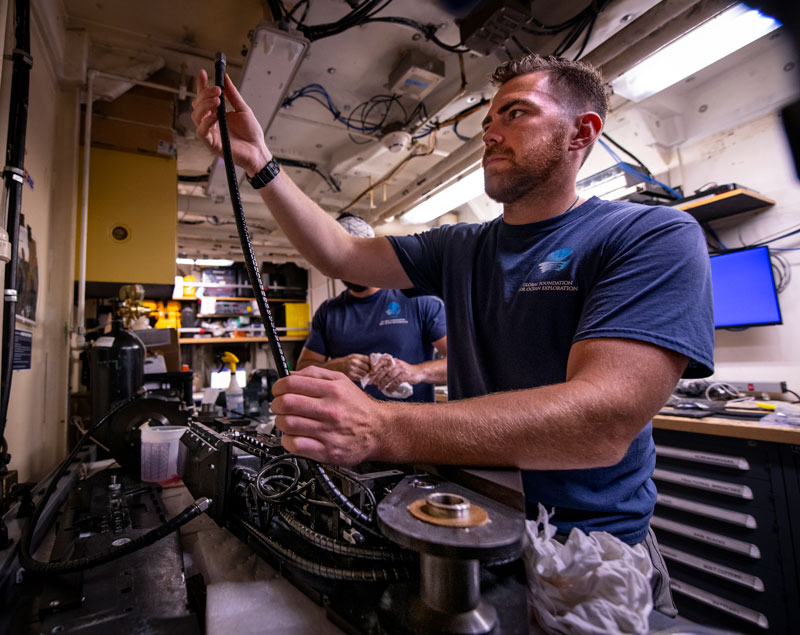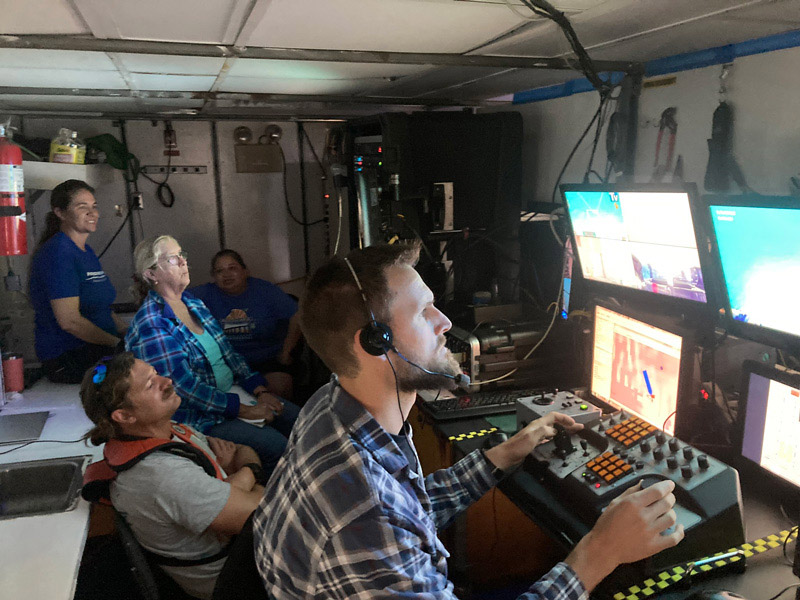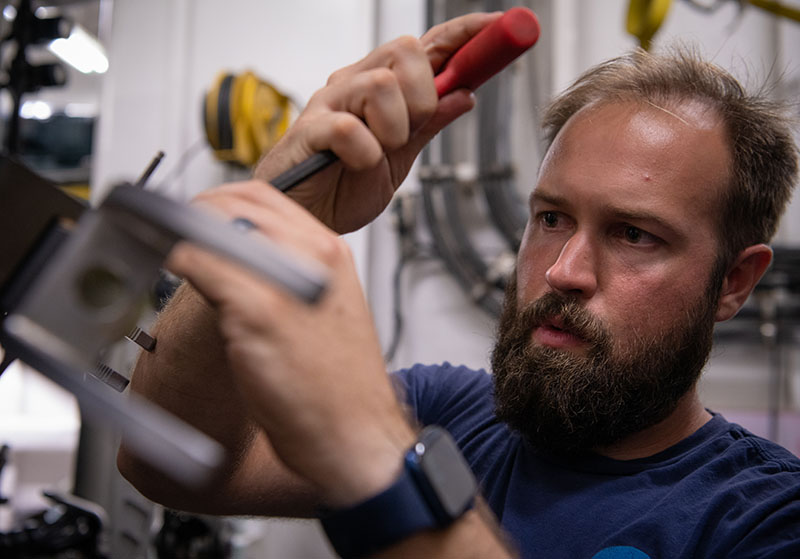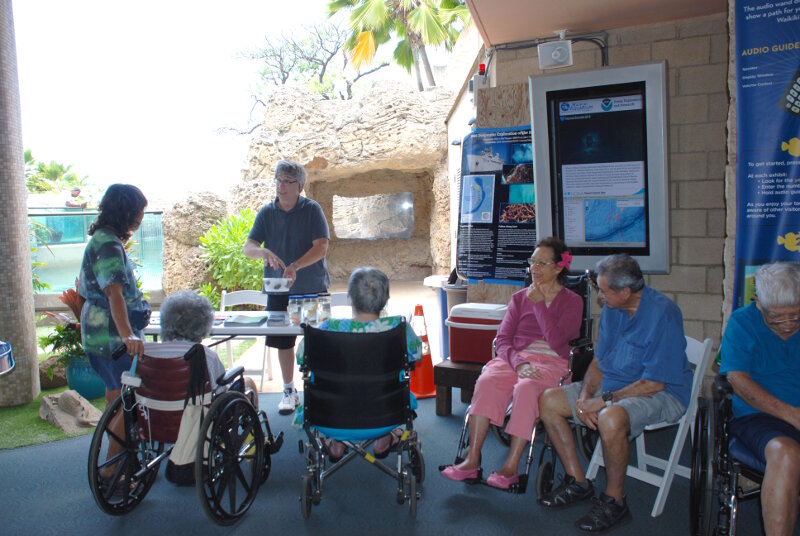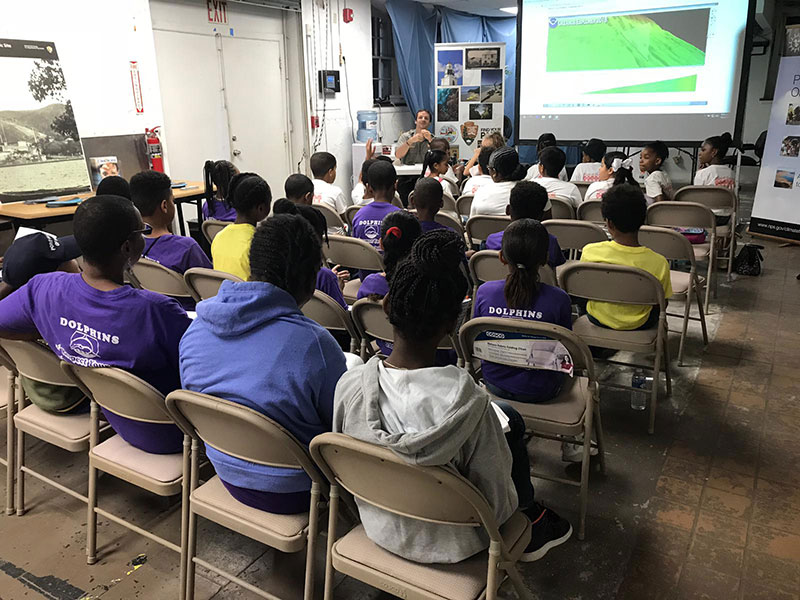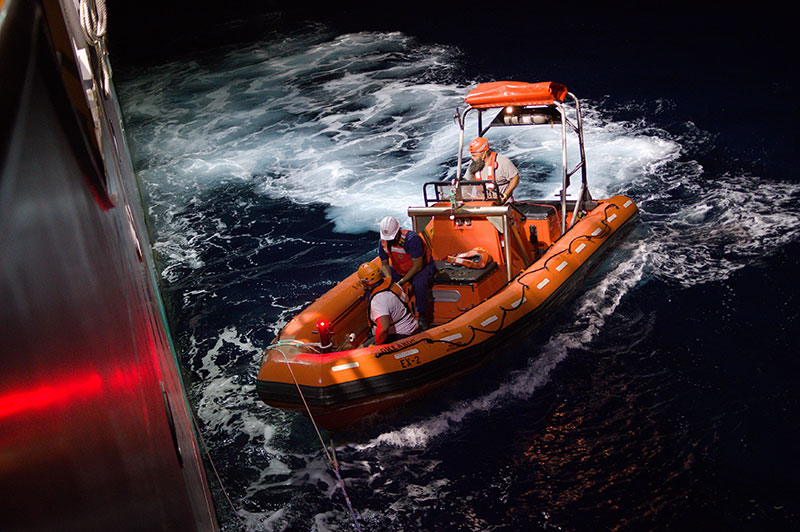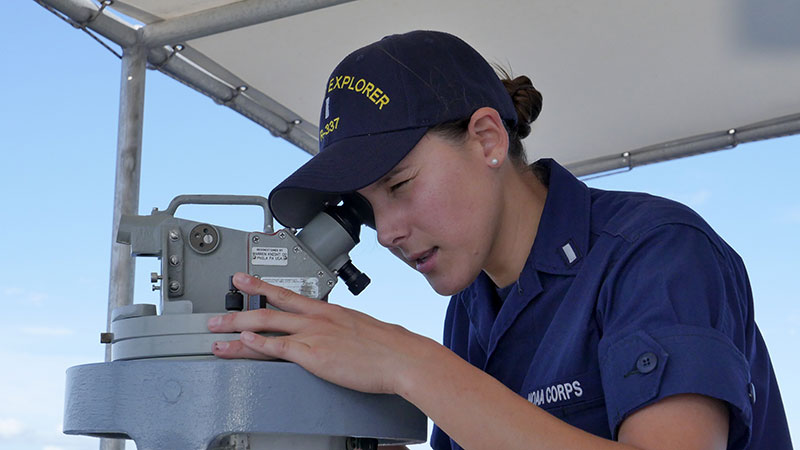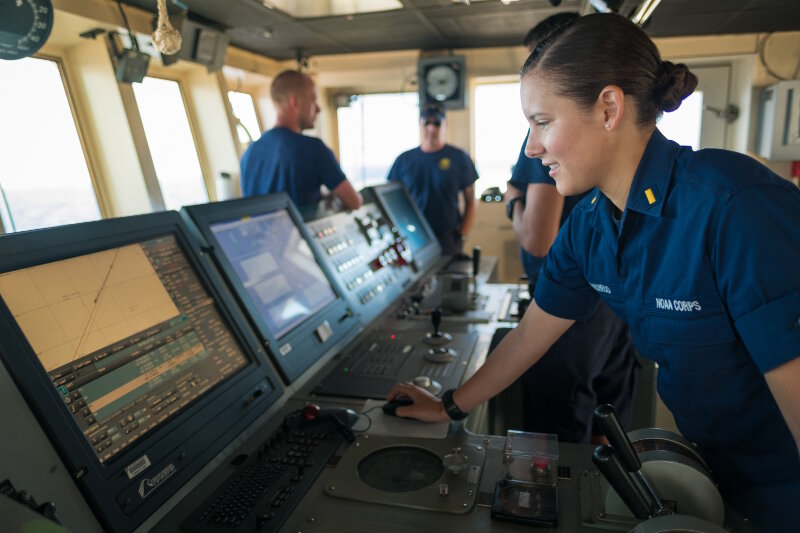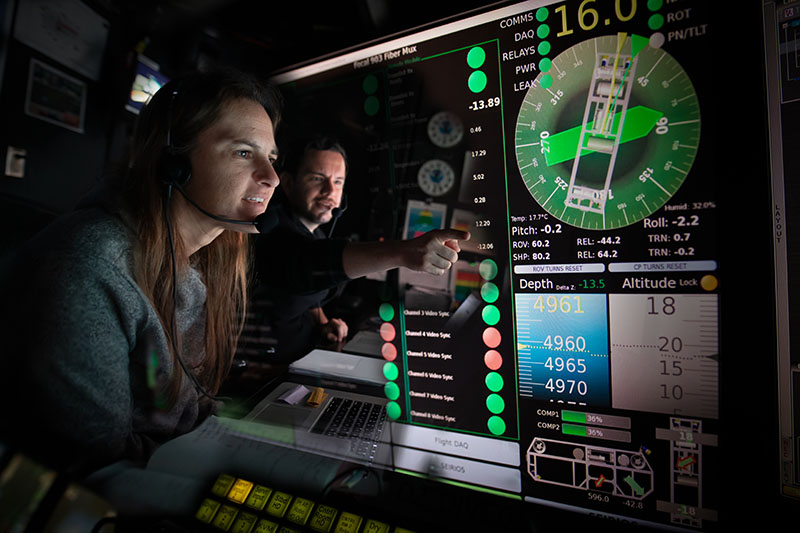Exploring the Ocean is a Big Job
Close your eyes and imagine a big ship, far out at sea, no land in sight. What is going on inside that ship? Can you see filmmakers on their computers, editing videos from the day’s remotely operated vehicle (ROV) dive? Chefs in the galley, making sure the team is well-fed for the day ahead? How about scientists in the lab, cataloguing deep-sea rock samples? Now, stretch your imagination and see yourself on that ship, exploring the ocean and learning about the mysteries of the deep.
Ocean explorers aim to make discoveries by systematically mapping and exploring unknown or poorly understood areas of our global ocean. In the process, explorers take observations and collect data that can be used for scientific research serving a variety of purposes. This includes supporting policymakers who introduce new laws or international agreements to restore and conserve our oceans.
By revealing the ocean’s secrets, we can uncover new resources for the food we eat, the energy that keeps our lights on, and even lifesaving medicines. Ocean exploration can give us a better sense of weather and climate patterns which help to predict and respond to natural disasters. As the Earth’s climate changes around us, we look to the ocean to learn more about how we are affecting our home planet and what these changes mean for the future of humanity.
Exploring remote, hard-to-reach places is no small feat. The crushing pressure, endless darkness, and extreme temperature of the deep ocean create big challenges that require creative solutions from exploration teams. Oftentimes, these challenges are turned into opportunities that drive the development of new innovations. From underwater robots to depth-defying sonars and from environmental DNA to satellites in space, ocean exploration brings our imaginations to life by going to places that no one has been before—and bringing back vital data in the process!
Now, ask yourself, what would you do as an ocean explorer? What new species might you discover? Which technology might you design? Luckily for you, ocean exploration is a big job. Let’s learn about how it’s done!
So What Does an Ocean Explorer Do Anyway?
Ocean exploration is a diverse field. While it can be easy to assume that exploration is only conducted by scientists or SCUBA divers, the reality is that anyone can be an explorer, and it takes all sorts of interests and expertise to accomplish mission goals.
The day-to-day life of an explorer varies depending on job focus area, educational background, and the type of organization you work for. The thought of ocean exploration can seem like something straight from an adventure movie: sailing the high seas in search of the unknown. While some jobs will fulfill this fantasy and others will have you play a critical role back on dry land, all ocean exploration careers require hard work, the ability to navigate challenges, and usually a lot of time spent working behind your computer. Let’s take a deep dive into some of the categories that ocean exploration jobs may fall into and the levels of education that they typically require.

